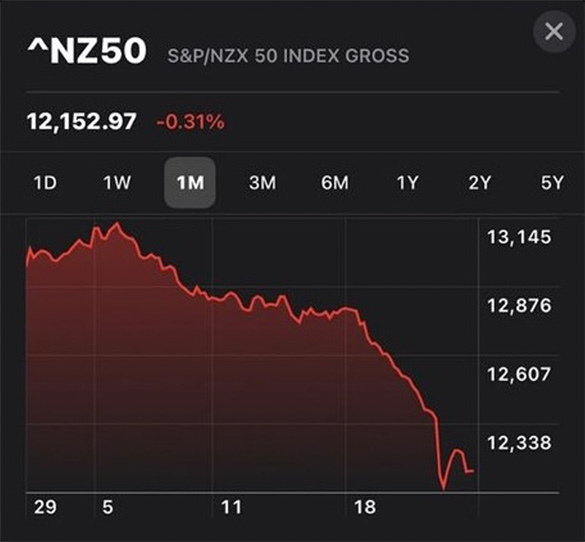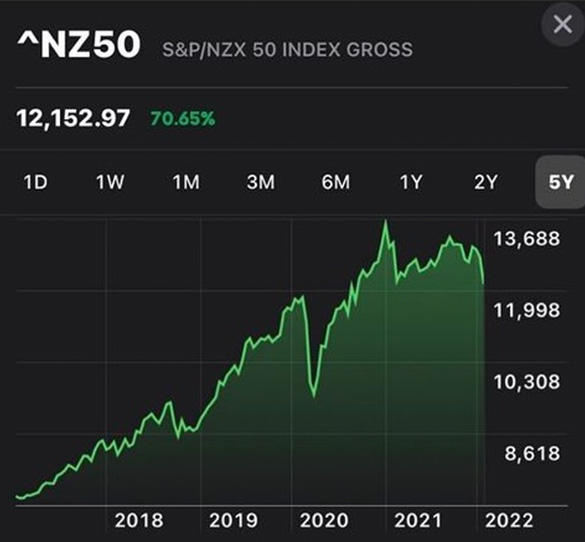Inflation – The thief in your pocket

Inflation - The thief in your pocket
Chances are you’ve been hearing the phrases “cost of living” and even “cost of living crisis” recently. It’s the latest hot button topic in the media. The question that naturally follows is, should I need to worry about it, and if so what is causing this “cost of living” crisis?
The answer to the first question is that life is becoming more expensive, but whether it’s a crisis or not really depends on your situation. If you already feel like you’re living week-to-week on your current income, it may feel like a crisis. If you are seeing the increase in living costs eat away at your surplus income, then it’s something that just needs to be managed as soon as possible. More on that later.
The answer to the second question is that a lot of the increases in the cost of living can be traced back to inflation which in turn is caused by several factors. We’ll take a look at these soon.
Why is inflation an issue right now?
The world we live in is a lot less certain than it was a few years ago, and as we’ve talked about in previous blogs – uncertainty tends to have a negative effect on the financial world.
We’ve got a war in Europe, we have the property market slowing down, and we have a once in a generation pandemic in the form of Covid. All of these factors contribute to rising inflation.
Covid is not only stopping people from being productive in New Zealand, it’s also strangling global supply chains particularly given the lockdowns it’s still causing in China. The war in Ukraine has further restricted global supply chains as well as created worry about the supply of things like natural gas and even grain. These restrictions on the flow of goods naturally push the price up of the ones we can access in New Zealand.
So who’s responsible for controlling inflation?
Generally speaking, inflation is a normal part of any economic model that is typically managed by the Reserve Bank which aims to keep it between 1-3%. Right now it’s officially at 5.9% (though we suspect this figure is actually a bit light) which is making some people at the Reserve Bank uncomfortable.
One of the most powerful tools the Reserve Bank has to control inflation is the Official Cash Rate (OCR). We suspect that if inflation increases much further then we will see the Reserve Bank increase the OCR by 0.5% to try and bring it back. This is major as the Reserve Bank typically only alters the OCR by 0.25%. So if this happens it tells us straight away that they are seeing inflation as a major problem.
But how does inflation affect me?
The unfortunate reality is that it really does hit you in the pocket. Inflation of 5.9% means that a typical basket of goods (think of this as your average weekly expenses) is now costing you 5.9% more than it did previously. It’s worth noting at this point that 5.9% is the average and these increases are always dispersed unevenly throughout. For instance, petrol is up 52% from last year, whereas rents are up roughly 4.5%.
This brings us to our first solution when it comes to tackling inflation; take a look at your expenses and make a budget. If inflation is at 5.9% then you can combat it by reducing your spending by 5.9%. Look at what you’re spending on things like electricity, subscriptions, groceries, takeaways and more. You might be surprised at how much you’re actually spending on the nice-to-haves. Make sure you get granular with your examination and be strict with yourself. Are you shopping with a list? Do you need Netflix and Neon? By being granular you can figure out which areas of spend are being hit the hardest by inflation, and therefore where you can save the most.
The next step is to question whether you have any untapped value that could help? For instance, could you get a boarder in to help pay the bills? Do you have a bach you could be renting? Think about things that could help you create extra income for yourself.
The harsh reality of inflation
We hate to be downers, but one useful way to consider the impacts of inflation is to take a great situation like a pay rise and consider what inflation does. Let’s say you’re a Kiwi who was making $100,000 (to use a round number) a year in 2021 and your boss gives you a pay rise of 3% ($3,000) in 2022 you’ll probably go “fantastic! Let’s celebrate”. The truth is though you’ve actually taken a pay cut of 2.9%… let me explain.
It cost you 5.9% less to purchase the same things last year, so that bottle of champagne you popped last year would have cost you $50. This year it costs $52.95. That spa pool you can finally splurge on last year would have cost you $10,000. This year it costs $10,590. So, yes you’re making more money, but because everything is relatively more expensive you’re actually in a worse position than you were last year before inflation and the pay rise.
The above is a useful thought experiment as it shows how pervasive inflation really is in people’s lives.
So, what’s the solution?
Simple. Walk into your boss’s office and demand a 5.9% pay increase to match inflation, and a 3% pay increase on top, because you deserve it. Actually, give me a moment… OK, that didn’t work. Time for plan B.
Once you’ve examined your obvious day to day expenses consider some of the less obvious things. Are you carrying debt? Is it possible to consolidate this so that you’re paying less in repayments? Do you have a strategy to get out of the debt?
We also advise our clients to remember that money in the bank is actually depreciating in value. A dollar in there today is going to be worth less tomorrow due to inflation, so you want to be thinking about how you can get more back from your hard-earned dollar – such as investing, which we understand, can be slightly scary at a time like this. It’s natural to think a nest egg in the bank feels like the best option, but the reality is, depending on your situation, there can be other really powerful levers you can pull to come out better off in the long run.
We understand this is probably beginning to get a little bit real so we really recommend getting in touch with our team, who can provide advice and who have access to our new investment packages that are being released in the next few weeks.
You can also check out our revamped Money Manager Tool. A lot of you have been asking for it on our weekly Rock chat, so we delivered. It’s much easier to use and has some awesome new features. Click here to get your free copy.
The final thing to do is to book in for your Support Package. For you it’s incredibly simple, for us it gives us all the information required to ensure we can help you get ahead. Basically, we’ll send you the Money Manager Tool, book you in for a 10-minute call to chat through how to use it, and then follow up with a 50-minute call to give you the insights that are going to help you get ahead. For more information click here.
Cheers,
The Money Men










